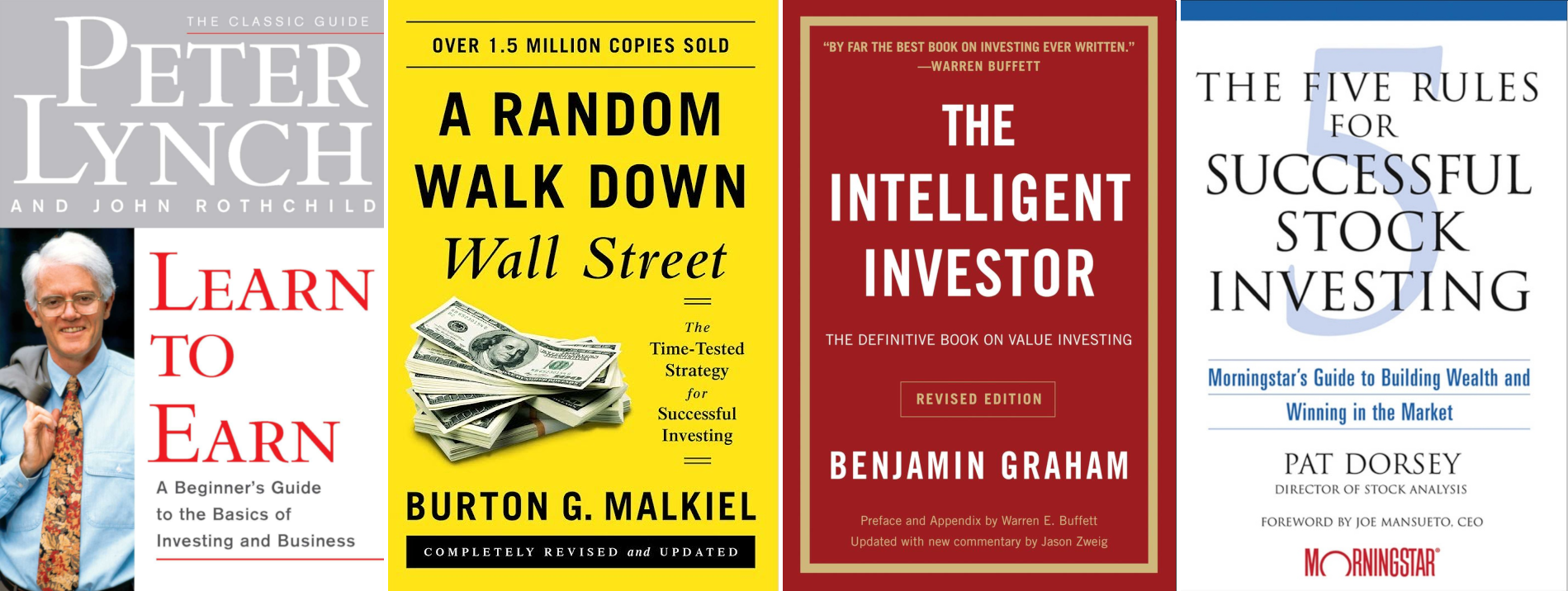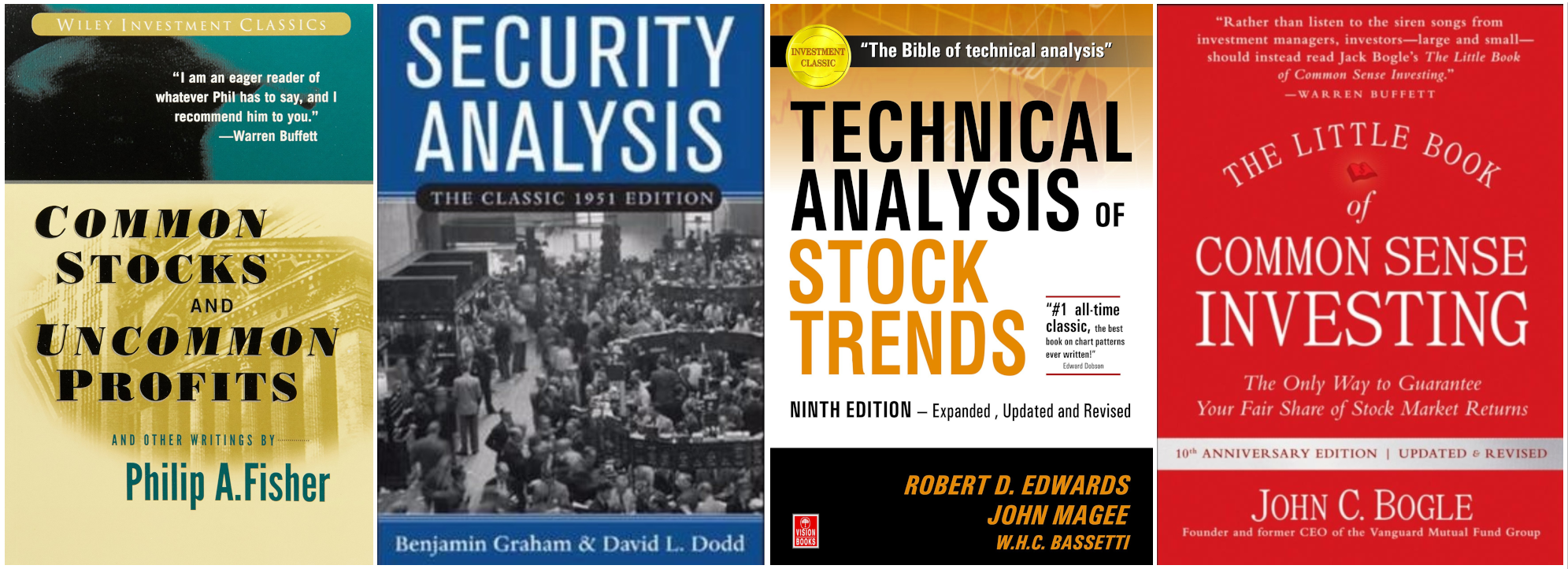
- All Instrument Types
- Indices
- Equities
- ETFs
- Funds
- Commodities
- Currencies
- Crypto
- Bonds
- Certificates
Please try another search

Breaking News
The 8 Books Every Aspiring Investor Should Read
No one is born a stock investor, and even those with the inclination and talent won’t succeed in the long term without understanding how the market works, and what “homework” you need to do before you buy your first share.
Investing in stocks sounds like a simple enough way to make money - you pay for a stock you believe will increase in value, wait for it to go up, then sell it for a profit. But how do you decide what company you want to invest in? After all, when you buy a company’s stock - you’re investing in the company’s current value and potential value.
Investing in the “Big Boys” can feel like a safe bet, but no one company is immune to market fluctuations, and investing in the more “stable” companies will often mean lower yield, and investing in more volatile companies means taking on a higher risk.
How do you go about analyzing a company to decide whether or not you should invest in it? Maybe you’re thinking of investing in an index instead? What does it mean and why should you?
You can pick up a book, but there are thousands upon thousands of books on each topic, and how do you know which book to start with?
Luckily for you, we’ve got a great list to start you off on your journey into the world of investing.

The Basics
Let’s begin with 2 books that’ll help you decide on what investing path you should consider.
The first book is Peter Lynch’s Learn to Earn: A Beginner's Guide to the Basics of Investing and Business. The book will teach you all the basics of how capitalism works, in relation to your personal finance and investing. Most investors don’t really understand how the stock market works, and that’s because even the basics aren’t taught in school, but in Learn to Earn you’ll see that there are investment opportunities everywhere!
The second book you’ll want to pick up is A Random Walk Down Wall Street by Burton G. Malkiel. Ask very well-read investor and they’ll tell you that it’s a must-read! By guiding you through the dot-com crash, Malkiel gives you a highly informative guide to managing your own investment portfolio (or at least understand what your broker is doing) confidently.
The Fundamentals of Analysis
Now that you have a good understanding of the basics, you’ll want to learn what and how to analyze potential investments before you put your money down.
You’ll want to start with what is considered to be the Bible of investing - The Intelligent Investor, by Benjamin Graham. Originally published in 1949, this book still holds true to today’s markets, by teaching you Graham’s philosophy, called “value investing”, which helps you avoid rookie mistakes and teaches you how to build investment strategies. This is definitely a must-read!
The next 2 books you’ll want to read are Pat Dorsey’s The Five Rules for Successful Stock Investing: Morningstar's Guide to Building Wealth and Winning in the Market and Philip A. Fisher’s Common Stocks and Uncommon Profits and Other Writings.
Both books teach you timeless investing strategies that have been in use for decades and still hold true.
Finally, you’ll want to get another of Graham’s books - Security Analysis: Principles and Technique. Dating back to 1934, Graham’s work seems to be timeless, giving you strategies for individual success, as well as advice for corporations on how to present shareholders with value and transparency.

Technical Analysis
Now, you can take your first plunge into the world of technical analysis. One of the best ways to start is by reading Technical Analysis of Stock Trends by Robert D. Edwards and John Magee. This is the mother and father of interpreting investors and markets’ predictability. It is the first book of its kind that taught its readers how to still turn a profit regardless of how the market was doing.
Index Funds
Last but definitely not least, is The Little Book of Common Sense Investing: The Only Way to Guarantee Your Fair Share of Stock Market Returns by John C. Bogle. One of Warren Buffett’s most recommended reading pieces, as it explains what an index is, how it works, and why it’s one of the best types of investments. Bogle is one of the industry’s legendary investors, and in his book he imparts with practical advice and in-depth insights into index investing. Best of all, the book is an easy read and will teach you that often, the path to wealth is slow and steady, and based on common sense.
Are you sure you want to block %USER_NAME%?
By doing so, you and %USER_NAME% will not be able to see any of each other's Investing.com's posts.
%USER_NAME% was successfully added to your Block List
Since you’ve just unblocked this person, you must wait 48 hours before renewing the block.
I feel that this comment is:
Thank You!
Your report has been sent to our moderators for review





Add a Comment
We encourage you to use comments to engage with other users, share your perspective and ask questions of authors and each other. However, in order to maintain the high level of discourse we’ve all come to value and expect, please keep the following criteria in mind:
Enrich the conversation, don’t trash it.
Stay focused and on track. Only post material that’s relevant to the topic being discussed.
Be respectful. Even negative opinions can be framed positively and diplomatically. Avoid profanity, slander or personal attacks directed at an author or another user. Racism, sexism and other forms of discrimination will not be tolerated.
Perpetrators of spam or abuse will be deleted from the site and prohibited from future registration at Investing.com’s discretion.